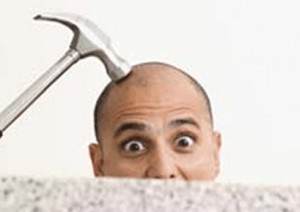I touched a nerve with my post about the pros and cons of the therapist taking the patient through the same things over and over again. They didn’t slam my perspective outright, nor would they. But they flagged some dangers in this technique that are important to share.
Mood music:
[youtube=http://www.youtube.com/watch?v=EZzus86pdls&fs=1&hl=en_US]
What makes their feedback so valuable is that they are therapists themselves. The following responses came my way by way of the LinkedIn NAMI group’s discussion board.
Thanks for sharing, my friends. Readers: See what they have to say and do what you will with the knowledge. There’s more than one way to skin this cat, as the comments show.
First, you should watch this video, which I put in that last post, because that’s what really hit a nerve.
In one of my favorite TV series, The West Wing, Deputy Chief of Staff Josh Lyman undergoes a long, brutal therapy session:
[youtube=http://www.youtube.com/watch?v=23dBqzo2aYY&version=3&rel=1&fs=1&showsearch=0&showinfo=1&iv_load_policy=1]
Kathleen Hockey, Author, Speaker, Mental Health Professional: It seemed to me Josh already knew what happened and the therapist was forcing him to be honest about it, to the therapist and thus to himself. This is good. However, I question the therapist who forces a client to hash over and over in his/her mind things in order to get at what is not remembered. That kind of digging is questionable practice. Also, not found in the West Wing piece (for drama’s sake obviously) is that the therapist’s next step would be to help Josh change his beliefs about the traumatic event and emotionally disconnect from the experience. Talking about the painful experience incessantly without this piece does make a client relive the experience, which is not good.
Me: All valuable points, Kathleen. I agree it’s questionable to rehash things just to get at what’s not remembered. From my experience as a patient, the rehashing was (or certainly seemed to be) designed to make me be honest about things I was dismissing on first and second brush. My experience is that a good therapist always seems to tell when I’m not being honest with myself. That’s when the rehashing happens. It was helpful to me, though I didn’t like it much at the time.That said, everyone is a little different in how they’ll respond to certain tactics. Thanks for your input.
Elena Yobaccio, Private Practice as Elena Yobaccio, MA – Psychotherapist: This therapist is fairly aggressive, which makes for good drama but effective trauma therapy does not (imo should not) progress like this and can be damaging. one of the theories behind “retelling” the traumatic event is that the therapist can help ground and moderate the client’s overwhelming emotions, help them take the story in digestable chunks of whatever size, and reintegrate the impossible-to-accept story into “normal” narrative memory so that it can finally be put to rest and associated memories and emotions, while painful, are no longer interrupting and disrupting life on an involuntary basis. i personally believe this is true and that our minds and hearts will only safely “remember” when we are strong enough, and with a safe enough person–not because we are pushed into it. with that said, encouragement, support and validation are all crucial to the process.
I have worked with many, many severely traumatized patients. I have rarely actually done actual trauma therapy because i have rarely been in a position to perform it safely. i have been through poorly done trauma therapy myself, and I have seen it done well and and done poorly with peers. I do know many people who have told me they avoid seeking therapy precisely because they are afraid they are going to be rushed into a feeling state they already know they can’t tolerate. or, they think that they are going to have some kind of massive cathartic remembering that is going to “cure” them so they try to hasten the process and succeed only in retraumatizing themselves. I think these kind of dramatic reenactments make for entertaining footage but don’t really help people understand what therapy actually is and does.
In terms of relational talk therapy, the key to successful trauma processing is not just remembering, it’s repairing the flow of memory so that the “trauma” is not sitting around un-inegrated in our minds. i think of traumatic memory as kind of an iceberg with big jagged edges free-floating and tearing through the fabric of the soul and the present moment. IMO talk-therapy dealing with trauma should and can only be done by a trained professional after a very strong alliance has been built with the client to provide them with the emotional bond necessary to endure and successfully experience and transform traumatic affect.
With that said, there are also alternatives to “talk therapy” for trauma, such as CBT and EMDR, which at least some people are reporting extremely helpful for PTSD treatment. CBT has never worked well for me, but I know it works well for some and has nothing to do with “telling and retelling” – it’s all about managing symptoms such as phobias and flashbacks; not my speciality either. And I have not personally tried EMDR.
I don’t know that any of this addresses your original point about repeatedly going over old ground, I just wanted to address the TV clip which is pretty representative of how media commonly portrays therapy and trauma therapy in particular.
Me: All great points. Thanks.
Gerry Hughes, Owner, Neuro-Linguistic Learning Center: When working with trauma or PSTD, our first rule is to NOT allow the client to associate in the memories and never allow the client to re-experience the emotions of the event. That type of ‘talk therapy is hack therapy, It is outdated and I think you could make the case that it is abusive. It is the very reason most sane people avoid therapy. 
There are solid techniques to release the emotional charge on traumatic events without re-traumatizing the client. EMDR can be extremely useful especially when the past events are mixed and confused.
NLP and TIME Techniques are awesome at releasing traumatic events. I average about 12 hours (4 sessions) to completely remove the fears, flashbacks, etc. associated with a traumatic experience.
Me: Thanks so much for the insight on NLP and TIME techniques. Fascinating and very helpful information.






